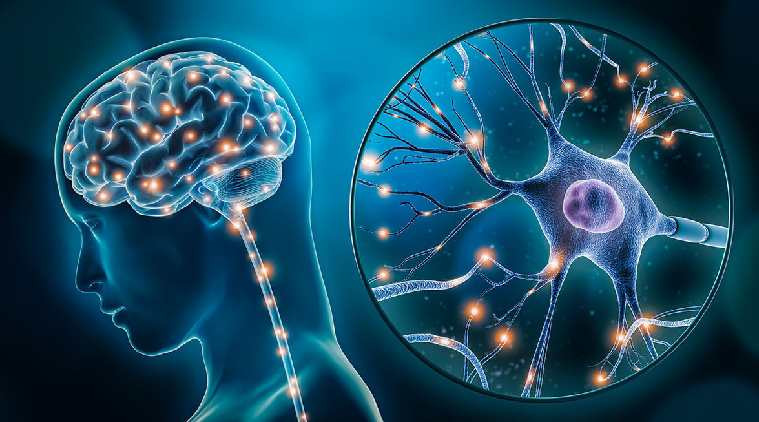
THE election frenzy is with us once more, where for the next two months we are going to hear political parties making a myriad of promises in order to try and convince voters to give them a mandate to preside over the affairs of our country for the next five years. In my opinion, in a perfect world, the criteria and capabilities on which we ought to be measuring any future leader must surely include vision, leadership, governance and economics.
Vision
In my books, leadership is really about articulating a tangible, exciting and motivating vision and doing the necessary to take followers there. A powerful vision inspires action of all sorts, it pulls in the necessary ideas, people and resources and creates the necessary energy and momentum for its own manifestation. Our imagination alone, of a probable future, fuels such a vision and leaders who fail to imagine or to inspire and create excitement and commitment to the creation of an imagined future reality will not succeed as we attempt to fundamentally transform the socio-economic conditions of our country. A national vision that is not shared but imposed by a select few will not work or last. Unless a vision unleashes energy and emanates from the innermost of our values, it cannot generate the necessary excitement and commitment towards its realisation.
Such a national vision needs to talk about renewal and transformation of both social and economic conditions in an inclusive manner and the emergence of a new developmental economy. It must talk about a structural transformation which results in new broad-based economic opportunities for all citizens in an environment which respects both their ambition and dignity and destroys the patronage economy which currently exists.
It needs to talk about a new nation arising through its prodigious endowments in both human and natural resources. It must be apolitical, clear, universal and simple to understand and commit to. A powerful vision cannot belong to any particular grouping, class or organisation, but must belong and be embraced by the generality of citizens of Zimbabwe.
Leadership
Good leaders surround themselves with smart people and allow them to do what they know best. They attract such people and keep them by creating the necessary space for them and availing the necessary resources. They have high self-esteem and they do not micro-manage or lead through fear. They let the best ideas win the day regardless of their source. They accept that they do not know everything or have all the answers and they also understand that to effectively lead, you must continually learn.
The qualities of integrity and authenticity are critical. Integrity is being honest and having strong moral values, while authenticity is being honest with oneself and others, while taking responsibility for your actions and your values and ensuring your actions are aligned.
- Drama around Ndebele king making a mockery of the throne
- ED heads for Marange
- ‘Zimbos dreading 2023 elections’
- Zim headed for a political dead heat in 2023
Keep Reading
Governance
Every governance structure creates the results that you get and if you need to create new results you must change the structure and not personalities. Effective leaders must understand that systems determine behaviour, performance and delivery.
Governance structures play a key role in the effective implementation of ideas. In order to see inclusive growth and development, we need to take seriously the idea of devolution of economic power and must, therefore, re-look at our provincial structures, build capacity there and allow our provincial economies to prosper by exploiting their factor endowments to their benefit.
In addition, local governance structures are still hugely colonial and limiting and we cannot take development to communities unless we change our mindset and include them. The cat and mouse approach between national and local governments must, therefore, be expunged.
At national level, the challenges of nepotism, competence and capacity remain one of our major failures. Leaders need to ask themselves who and why they appoint particular people in particular positions and must ensure there are consequences for poor performance and non-delivery. Sadly, in a patronage economy, blind loyalty and not competence or talent becomes the measure of success. That must end.
Economics
The prerequisites for successful economic transformation include:
- An acceptance that the current economic structure has failed toand cannot meet the growing and diverse social and economic needs of citizens.
- An acceptance that current “solutions” are not addressing those needs and that we need a different approach to and a re-think of economic recovery and transformation.
- An acceptance that we require a new social impetus driven by a new inclusive vision and shared values which can galvanise citizens into positive action.
A thorough grasp of issues economic is a critical success factor going forward. In order to unlock the full potential of our economy, mindsets about what is possible must surely change. Whatever we have done to date has not fully exploited our potential and a new paradigm is necessary.
Economics is really about human development and meeting the diverse aspirations of citizens. Unfortunately, economic policy can indeed end up being an academic exercise, but ultimately, the numbers need to be reduced to tangibility. If we concur, it therefore, means that what is imperative for any government is the actual social impact of its economic policies on the ground.
Our core economic policies should be driven by the need to rapidly modernise and industrialise our economy. The industrialisation multiplier effect creates sustainable growth in other sectors of the economy while its employment opportunities can indeed lift many out of poverty. A buoyant industrial sector is typically fed by primary products on the input side, while it creates more value on the output side. Its backward and forward linkages to the rest of the economy are substantial. It also has increasing marginal returns, meaning that the more you produce the cheaper and, therefore, the more profitable, the extra units produced become, which is not the case with primary production in the agricultural and mining sectors. We have to modernise and industrialise aggressively moreso that, as much as possible, we manufacture what we consume and export more manufactured products. An industrial revolution should, therefore, be at the centre of transformation.
In conclusion and in my opinion, these are, in brief, the key criteria, qualities, characteristics or capabilities of the right leader for our country at this juncture. The question is: do they currently exist in the pool of those who seek and are competing to lead us? Food for thought.
- Vince Musewe is an independent economist. He writes here in his personal capacity. You can contact him directly on [email protected]











